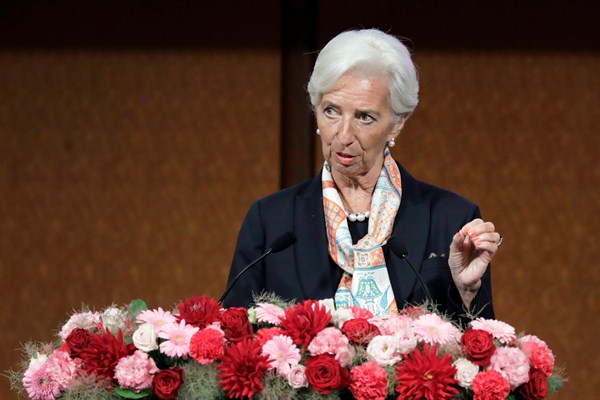Christine Lagarde took over the top spot at the International Monetary Fund eight years ago in the midst of two crises. The first was an internal crisis of leadership: Her predecessor, Dominique Strauss-Khan, had just been forced to step down amid sexual assault allegations, only four years into his tenure. The second crisis was external: Europe’s economy was reeling after an initial bailout of Greece hadn’t resolved its debt crisis and political tensions between Athens and Brussels threatened to upend any future deal.
Now, Lagarde is leaving the fund to become the likely next chair of the European Central Bank. Thanks to Lagarde’s leadership, her successor will inherit a stronger institution and far less tumultuous conditions. Yet her tenure in Washington was not without controversy. She also leaves her replacement with some major challenges, including preparing for the next financial crisis and keeping the peace between the IMF’s two most important member states.
It is easy to forget how fraught the political and economic situation was in Europe when Lagarde took charge at the IMF. It was still fashionable to question whether the common currency would survive. Today, while scars are still evident, the most pessimistic predictions have largely faded. At least some of the credit for this lies with Lagarde, though it would be wrong to suggest her handling of the crisis was above reproach.

